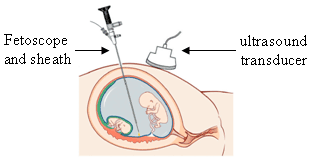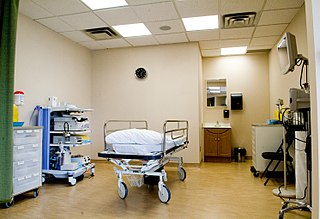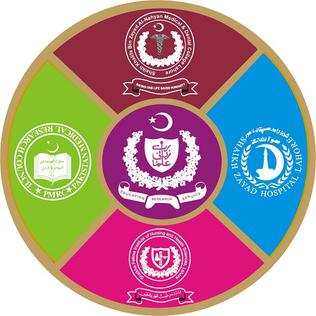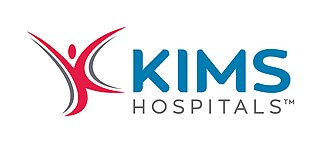
An endoscopy is a procedure used in medicine to look inside the body. The endoscopy procedure uses an endoscope to examine the interior of a hollow organ or cavity of the body. Unlike many other medical imaging techniques, endoscopes are inserted directly into the organ.

An endoscope is an inspection instrument composed of image sensor, optical lens, light source and mechanical device, which is used to look deep into the body by way of openings such as the mouth or anus. A typical endoscope applies several modern technologies including optics, ergonomics, precision mechanics, electronics, and software engineering. With an endoscope, it is possible to observe lesions that cannot be detected by X-ray, making it useful in medical diagnosis. Endoscopes use tubes which are only a few millimeters thick to transfer illumination in one direction and high-resolution images in real time in the other direction, resulting in minimally invasive surgeries. It is used to examine the internal organs like the throat or esophagus. Specialized instruments are named after their target organ. Examples include the cystoscope (bladder), nephroscope (kidney), bronchoscope (bronchus), arthroscope (joints) and colonoscope (colon), and laparoscope. They can be used to examine visually and diagnose, or assist in surgery such as an arthroscopy.

Functional endoscopic sinus surgery (FESS) is a procedure that is used to treat sinusitis and other conditions that affect the sinuses. Sinusitis is an inflammation of the sinuses that can cause symptoms such as congestion, headaches, and difficulty breathing through the nose.
The Lyell McEwin Hospital (LMH) is a major tertiary hospital located in Adelaide, South Australia that provides medical, surgical, diagnostic, emergency and support services to a population of more than 300,000 people living primarily in Adelaide's north and north eastern suburbs. It is affiliated with the University of Adelaide and the University of South Australia. It is named after Sir Alexander Lyell McEwin.

University of Missouri Health Care is an American academic health system located in Columbia, Missouri. It's owned by the University of Missouri System. University of Missouri Health System includes five hospitals: University Hospital, Ellis Fischel Cancer Center, Missouri Orthopedic Institute and University of Missouri Women's and Children's Hospital — all of which are located in Columbia. It's affiliated with Capital Region Medical Center in Jefferson City, Missouri. It also includes more than 60 primary and specialty-care clinics and the University Physicians medical group.

Capsule endoscopy is a medical procedure used to record internal images of the gastrointestinal tract for use in disease diagnosis. Newer developments are also able to take biopsies and release medication at specific locations of the entire gastrointestinal tract. Unlike the more widely used endoscope, capsule endoscopy provides the ability to see the middle portion of the small intestine. It can be applied to the detection of various gastrointestinal cancers, digestive diseases, ulcers, unexplained bleedings, and general abdominal pains. After a patient swallows the capsule, it passes along the gastrointestinal tract, taking a number of images per second which are transmitted wirelessly to an array of receivers connected to a portable recording device carried by the patient. General advantages of capsule endoscopy over standard endoscopy include the minimally invasive procedure setup, ability to visualize more of the gastrointestinal tract, and lower cost of the procedure.

Middlemore Hospital is a major public hospital in the suburb of Ōtāhuhu, Auckland, New Zealand. The hospital has approximately 800 beds. There are 24 operating theatres across two sites.
Spartanburg Regional Healthcare System(SRHS) is one of South Carolina's largest healthcare systems. SRHS draws patients primarily from the areas of Spartanburg, Cherokee, Union, and Greenville counties (all located in the Piedmont region of South Carolina), as well as Rutherford and Polk counties (located in western North Carolina). Spartanburg General Hospital was organized under the authority of the South Carolina General Assembly in 1917. It officially became the Spartanburg Regional Health Services District, Inc., a political subdivision of the State of South Carolina, by the charter granted by the Secretary of State of South Carolina on May 1, 1995.

Danat Al Emarat Hospital (DAE) or Mother of Pearl is a specialised hospital dedicated to women and children in Abu Dhabi, United Arab Emirates.

An endoscopy unit refers to a dedicated area where medical procedures are performed with endoscopes, which are cameras used to visualize structures within the body, such as the digestive tract and genitourinary system. Endoscopy units may be located within a hospital, incorporated within other medical care centres, or may be stand-alone in nature.

Meir Medical Center is regional hospital in Kfar Saba, Israel. It is the seventh largest hospital complex in the country, and is part of a network of hospitals owned and operated by Clalit Health Services.

Siddhartha Medical College is a medical college in Vijayawada, Andhra Pradesh. It provides undergraduate and graduate medical education in AP. It is located in Gunadala, Vijayawada, Andhra Pradesh.It is affiliated to Dr. YSR University of Health Sciences
Ford Hospital and Research Centre (FHRC) was established in Patna, Bihar, India in Year 2008 and officially inaugurated by Chief Minister of Bihar Shri Nitish Kumar on 24 August 2010, with the sole objective of providing advance healthcare services to the people of Bihar. The first phase of the hospital was commissioned on 24 August 2010 with 60 beds. The hospital has now expanded to 105 beds and is the one among the largest private hospital of Bihar.

Vanguard Healthcare Solutions Ltd. is a provider of mobile clinical facilities based in Gloucester.

Shaikh Zayed Medical Complex, Lahore (SZMC) is one of the premier medical institutions and the first facility offering liver transplant in Pakistan. located at the geographic center of Lahore, Pakistan.
A scanning fiber endoscope is a technology that uses a flexible, small peripheral or coronary catheter to provide wide-field, high-quality, full-color, laser-based video imaging. These differences distinguish SFE applications from current imaging approaches such as IVUS and Intracoronary OCT. Applications for the device, are expected to include medical diagnosis and support in determining interventional treatments such as surgery or biopsy. Providing both full-color images and a wide-field, real-time surgical view into the inner depths of arteries, enables physicians to circumnavigate hard to reach internal tissues to assess for potential disease.
The per-oral endoscopic myotomy, or POEM, is a minimally invasive surgical procedure for the treatment of achalasia wherein the inner circular muscle layer of the lower esophageal sphincter is divided through a submucosal tunnel. This enables food and liquids to pass into the stomach, a process that is impaired in achalasia. The tunnel is created, and the myotomy performed, using a flexible endoscope, meaning the entire procedure can be done without external incisions.

The Mariupol Regional Intensive Care Hospital, formerly known as Mariupol City Hospital No. 2 is the largest hospital in Mariupol and in the Donetsk region (Ukraine), designed to provide inpatient and outpatient tertiary level care to residents of the region and secondary to the population of the Central region of Mariupol.
An invasive test is a type of medical procedure that requires trained medical providers to use instruments that cut skin or that are inserted into a body opening. Examples of invasive tests include biopsy, excision, cryotherapy, and endoscopy.

The Krishna Institute of Medical Sciences is an Indian hospital chain based in Telangana. It was founded by Dr. Bhaskar Rao Bollineni in 2000 in the city of Nellore. Currently, the KIMS Group operates 12 hospitals across the states of Andhra Pradesh, Telangana and Maharashtra. The KIMS Hospital Group is certified by NABH and NABL. It is listed on BSE and the NSE.















